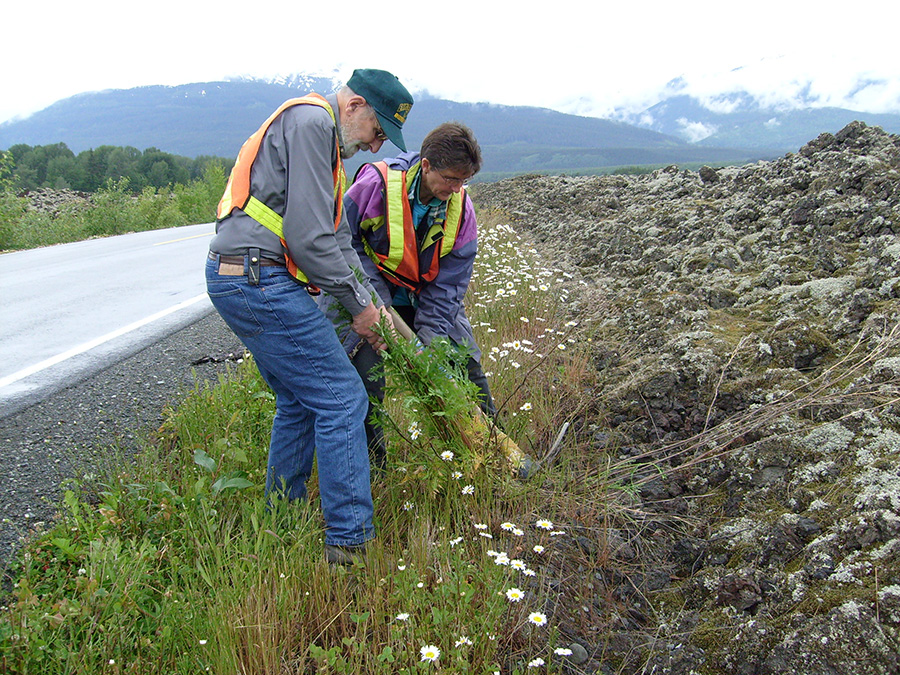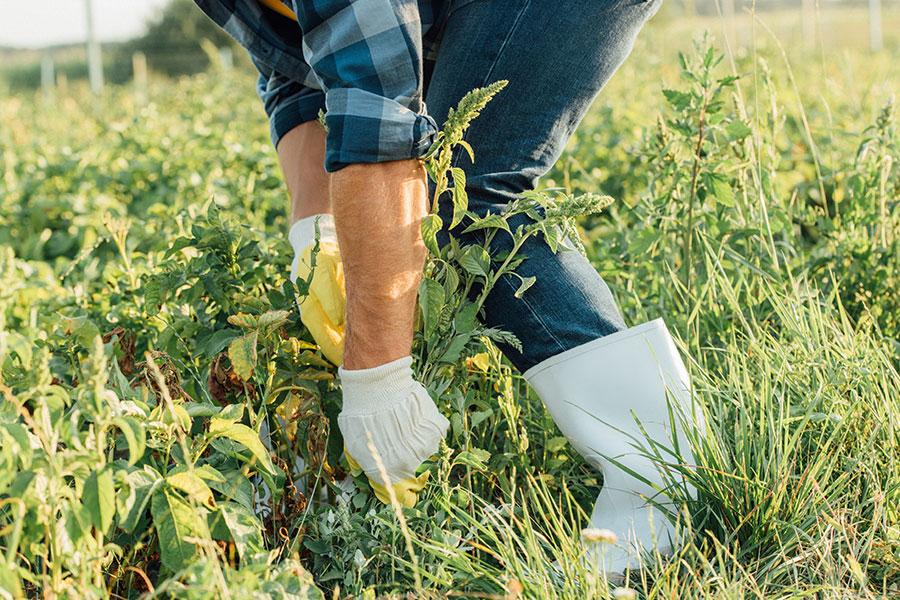Take Action
Get Involved
There are several ways that you can get involved in invasive plant control. Most importantly, educate yourself about plants and solutions, report invasive plants found in your community and area (dial 1-866-449-3337) or download the Report Invasives app available for smart phones (iOS and Android) and participate in our Landowner Weed Removal Rebate Program.
What YOU can do
- Learn to identify invasive plants common in your region.
- Report sightings of invasive species using the NWIPC Reporting form or on apps like Report Invasives BC.
- Avoid moving plants, soil, or firewood between areas.
- Volunteer with local invasive species groups or community weed pulls.
- Teach others — raise awareness among friends, family, and neighbors.
- Be cautious with pets and aquariums — don’t release unwanted plants or animals into the wild.
Recreation
- Clean boots, bikes, boats, ATVs, and gear before and after visiting natural areas.
- Stay on designated trails and roads to avoid disturbing vegetation and spreading seeds.
- Avoid transporting firewood, hay, or fill material from infested areas.
- Use certified weed-free feed for pack animals and livestock on trails.
- Report sightings of invasive species using the NWIPC Reporting form or on apps like Report Invasives BC.
- Follow ‘Play Clean Go’ and ‘Don’t Let It Loose’ principles.
Horticulture
- Choose non-invasive plants for gardens and landscaping; use native or non-invasive alternatives.
- Avoid using invasive ornamentals, even if they are readily available at nurseries.
- Buy from certified weed-free suppliers and ask garden centers about invasive species concerns.
- Inspect and clean tools, equipment, pots, and soil before moving them between sites.
- Dispose of garden waste properly — do not dump in natural areas or compost invasive plants.
- Educate clients and staff about invasive plants and responsible planting choices.
Resource Industries
These include Oil & Gas, Forestry, Mining, Utilities, etc.
- Implement Invasive Plant Management Plans as part of environmental due diligence.
- Inspect and clean vehicles, machinery, and materials before entering or leaving work sites.
- Avoid working in areas with known infestations or take extra containment measures.
- Use clean gravel, soil, and fill material from verified sources.
- Stabilize disturbed soil quickly with native or non-invasive cover species.
- Train staff and contractors on identification and prevention practices.
Agriculture
- Use certified weed-free seed, hay, and forage.
- Regularly monitor and control field edges, ditches, and fence lines for invasive plants.
- Clean equipment and machinery before moving between fields or farms.
- Rotate pastures and manage grazing pressure to maintain healthy, competitive vegetation.
- Control infestations early to reduce spread and long-term impacts.
- Participate in local invasive species programs and share knowledge with neighbors.
Landowner Rebate Program
The NWIPC conducts a program to encourage rural private landowners to control invasive plants on their property. In the Landowner Weed Removal Rebate Program, the NWIPC will reimburse eligible landowners for 50% of invasive plant treatment costs up to a maximum of $750.00 (contractor travel costs are excluded)
In order to qualify for the reimbursement for weed control on private land the landowner must perform the following:
- The landowner must hire a certified pesticide applicator with a valid service license to provide invasive plant treatment recommendations and a cost estimate. A list of potential service providers is provided by NWIPC with the application. The cost must be within industry standards. Only invasive species on the list included with the application are eligible for treatment.
- Complete and submit the Landowner Weed Removal Rebate application form.
- You will receive a letter from NWIPC advising you of the acceptance of your application and confirmation of reimbursement.
- Complete and submit the Rebate Request Form to NWIPC once the treatment is completed and you have paid the contractor. Remember to include a copy of the applicator’s invoice, treatment area maps, applicator certificate number and expiry date, and service license number and expiry date, and send to projects@nwipc.org.
- The annual deadline for rebate requests is November 15th of the year in which work was completed
Fund Raising Opportunity
Community Invasive Plant Pull form (CIPP): The CIPP is an opportunity for your organization to raise funds while providing a service to the community and environment by helping prevent the spread of invasive plants. The goal of the program is to promote public awareness of non-native invasive plants and to engage adults and youth in the control of invasive plants on sensitive sites (e.g., near water, where public may be impacted, ecosystems at risk). To accomplish this goal the NWIPC asks community groups to dig, hand pull and/or dead-head invasive plants on these sites. The group then qualifies for a $250 honorarium in appreciation of their good work.




